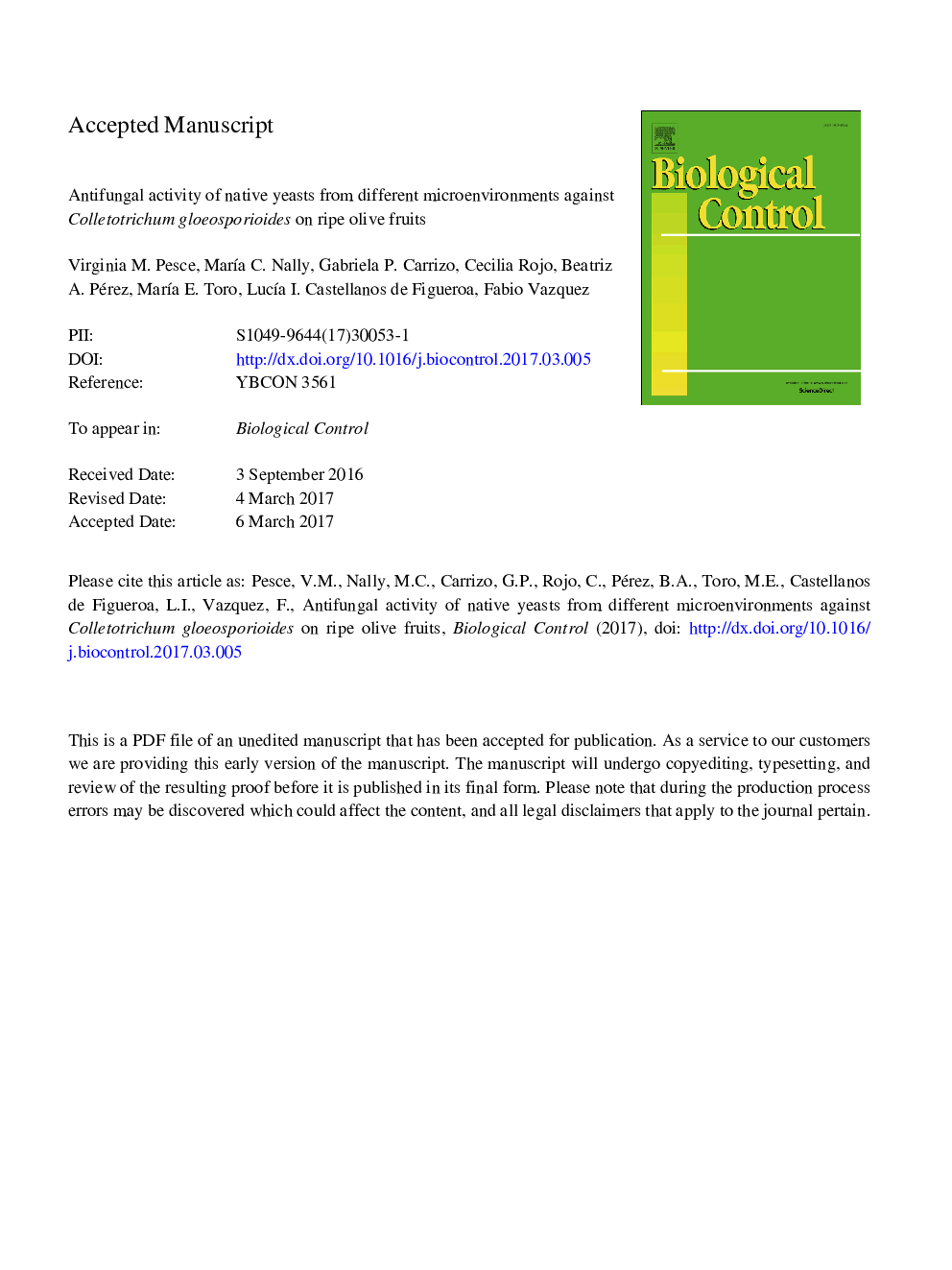| Article ID | Journal | Published Year | Pages | File Type |
|---|---|---|---|---|
| 8877701 | Biological Control | 2018 | 46 Pages |
Abstract
Anthracnose is a fungal disease caused by Colletotrichum species, which mainly affects olive fruits during ripening. The use of yeasts from related and unrelated microenvironments in the control of plant pathogens has become an alternative to the use of synthetic fungicides. The objectives of the present study were to evaluate in vitro biocontrol strategies against C. gloeosporioides, in order to select native antagonistic yeasts isolated from different microenvironments, and to verify the in vivo biocontrol activity on ripe olive fruits. The potential human pathogenicity of the antagonistic yeasts was also considered. A total of 241 wild yeasts from diverse olive cultures and vitivinicultural microenvironments were assayed in vitro and in vivo for their antagonistic effect against the pathogen C. gloeosporioides. Ninety-two yeasts with in vitro characteristics of competitiveness such as niche overlap, dominance against the pathogen, reduction of fungal growth and production of antifungal metabolites were examined on ripe olive fruits. Nine biocontrol yeasts, three from fermenting grape must and six from olive fruits, leaves and branches in vivo reduced the incidence and severity of C. gloeosporioides. According to the 42 °C test, which assays for pseudohyphal formation and phospholipase production, these biocontrol yeasts did not present a health risk to humans. Microenvironments with selective stress factors can be relevant sources of microorganisms with biocontrol purposes.
Related Topics
Life Sciences
Agricultural and Biological Sciences
Agronomy and Crop Science
Authors
Virginia M. Pesce, MarÃa C. Nally, Gabriela P. Carrizo, Cecilia Rojo, Beatriz A. Pérez, MarÃa E. Toro, LucÃa I. Castellanos de Figueroa, Fabio Vazquez,
